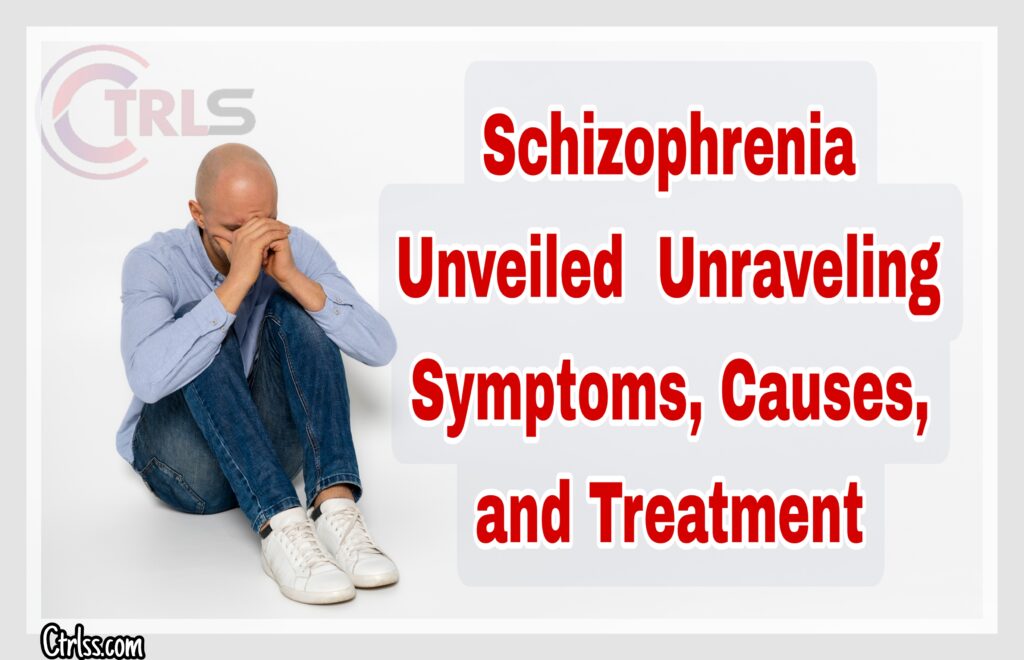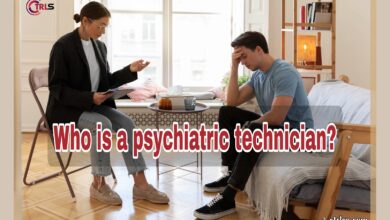What Is Schizophrenia ? and What Is Symptoms, Causes, and Treatment?
Hey there, folks! Today, we’re diving into the complex world of schizophrenia, a mental health condition that affects millions of individuals worldwide. In this comprehensive guide, we’ll explore the symptoms, causes, and treatment options for schizophrenia. So, grab a cup of coffee, get cozy, and let’s embark on this enlightening journey together!
Understanding Schizophrenia: What You Need to Know

What is Schizophrenia?Schizophrenia: is word you’re likely curious about, is a chronic brain disorder that disrupts a person’s thoughts, emotions, and perception of reality. It’s a condition that can be debilitating, affecting every aspect of a person’s life. Now, let’s delve into the fascinating details surrounding schizophrenia.
The Symptoms: A Closer Look at Schizophrenia’s Hallmarks
Schizophrenia manifests itself through a variety of symptoms that can vary from person to person. Let’s explore some of the common symptoms associated with this condition:
- Delusions: Individuals withSchizophrenia may experience delusions, which are false beliefs that are not based on reality. These delusions can be grandiose, paranoid, or bizarre in nature.
- Hallucinations: Hallucinations are another hallmark of schizophrenia. People might also additionally hear, see, smell, or sense matters that aren’t simply there. These experiences can be distressing and confusing.
- Disorganized Thinking: SchizophreniaOften leads to disorganized thinking patterns, making it difficult for individuals to communicate coherently. Their speech may become fragmented, making it challenging for others to understand them.
- Abnormal Motor Behavior: People with schizophrenia may exhibit unusual motor behaviors. They may repeat certain movements, exhibit catatonic behavior (remaining motionless for extended periods), or display unpredictable and purposeless actions.
- Negative Symptoms: In addition to positive symptoms (such as delusions and hallucinations), schizophrenia can also present negative symptoms. These include a lack of motivation, reduced emotional expression, and social withdrawal.
Unraveling the Causes: What Triggers Schizophrenia?
While the exact causes of schizophrenia are yet to be fully understood, researchers believe that a aggregate of genetic, environmental, and neurochemical elements contributes to its development. Here are some key factors that may increase the risk of developing schizophrenia:
- Genetics: Heredity plays a significant role in schizophrenia. If you have a close family member with the condition, your risk of developing it is higher than that of the general population.
- Brain Chemistry: Imbalances in certain brain chemicals, such as dopamine and glutamate, are believed to be involved in the development of schizophrenia. These imbalances can affect how the brain processes information.
- Environmental Factors: Experiences during early life, such as exposure to viruses, malnutrition, or significant stress, may increase the risk of developing Schizophrenia. Additionally, drug abuse, particularly during adolescence, has been linked to an increased likelihood of developing the condition.
Shedding Light on Treatment Options for Schizophrenia
Now that we’ve explored the symptoms and causes ofschizophrenia, let’s shift our focus to the available treatment options. While there is no cure for schizophrenia, effective treatments can help individuals manage their symptoms and lead fulfilling lives. Here are a few not unusualplace approaches:
- Medication: Antipsychotic medications, such as {schizophrenia} medications, are commonly prescribed to manage the symptoms of schizophrenia. These medications work by balancing brain chemicals and reducing the intensity of delusions and hallucinations.
- Therapy: Various forms of therapy, such as cognitive-behavioral therapy (CBT) and family therapy, can be beneficial for individuals with schizophrenia. Therapy sessions provide a safe space for individuals to discuss their experiences, learn coping strategies, and improve their overall well-being.
- Support Services: Supportive services, including vocational training, housing assistance, and social skills training, can greatly enhance the quality of life for individuals with schizophrenia. These services aim to promote independence and help individuals integrate into their communities.
Living with Schizophrenia: Tips for Self-Care and Support

Living with Schizophrenia: Tips for Self-Care and Support
If you or a loved one is living with schizophrenia, it’s essential to prioritize self-care and seek support. Here are some tips to help navigate the challenges associated with the condition:
- Stick to Medication: Consistently taking prescribed medication is crucial for managing symptoms effectively. Discuss any concerns or side effects with your healthcare provider to ensure the best possible outcome.
- Build a Support Network: Surrounding yourself with a supportive network of friends, family, and mental health professionals can provide the understanding and encouragement needed on this journey.
- Practice Stress Management: Managing stress is key for individuals withSchizophrenia. Engage in relaxation techniques, such as deep breathing exercises, meditation, or engaging in hobbies that bring you joy and peace.
- Educate Yourself: Educating yourself about schizophrenia can help you gain a better understanding of the condition, reduce stigma, and empower yourself to make informed decisions aboutyour own well-being.
Shedding Light on Schizophrenia’s Complexities
schizophrenia is a multifaceted condition that impacts individuals in unique ways. By understanding the symptoms, causes, and available treatment options, we can break down the barriers surrounding this often stigmatized condition.
Whether you’re someone living withSchizophrenia, a caregiver, or simply seeking knowledge, remember that support, compassion, and empathy are essential in fostering a more inclusive society. Let’s work together to create a world where individuals with schizophrenia can thrive and live their best lives.
So, next time you come across the keyword “schizophrenia” in your search for information, remember this comprehensive guide. We hope it provides you with a deeper understanding of the condition and serves as a valuable resource for your journey toward knowledge and awareness.
If you or someone you know is struggling withSchizophrenia or any mental health concern, don’t hesitate to reach out to a healthcare professional or helpline in your area. Remember, there is always hope and help available.
Stay informed, stay compassionate, and let’s continue to break down the misconceptions surrounding schizophrenia, one conversation at a time.
Disclaimer: The information provided in this article is for educational purposes only and should not be used as a substitute for professional medical advice. Always consult with a qualified healthcare professional for an accurate diagnosis and personalized treatment plan.
Thank you for reading!



